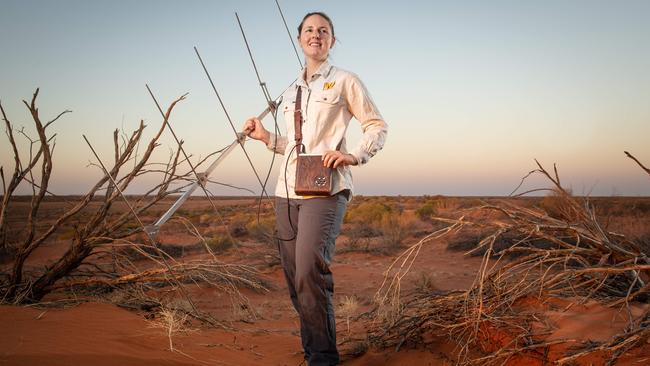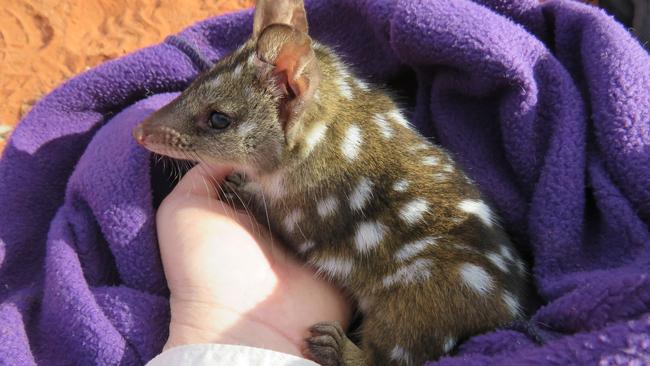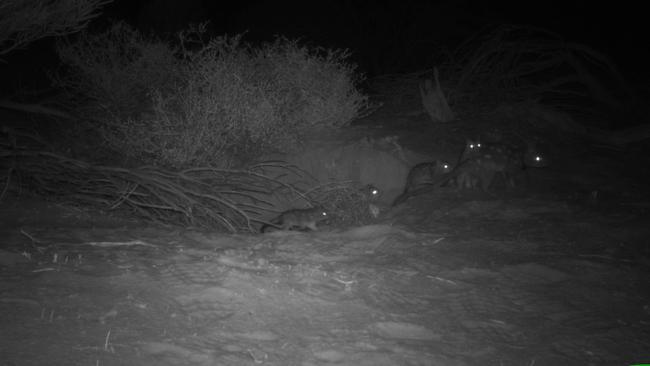Glimpse into life helping threatened animals at Arid Recovery’s Roxby Downs reserve
Taking on a nocturnal lifestyle, tracking animals across a 120sq km reserve and reaching into traps to pull out grumpy animals is all part of the job for Melissa Jensen.

SA News
Don't miss out on the headlines from SA News. Followed categories will be added to My News.
Taking on a nocturnal lifestyle, tracking animals across a 120sq km reserve and reaching into traps to pull out grumpy animals is all part of the job for Melissa Jensen.
Ms Jensen, who works as reintroduction technical officer for Arid Recovery near Roxby Downs, offered The Advertiser a glimpse into her role on a recent visit to the region.
Driving across the reserve just before sunrise, she said during the western quolls’ breeding season she worked through the night to check the traps that had been set to monitor the animals.
“We want the mothers to be able to get back to their young,” Miss Jensen said.
“You just turn a bit nocturnal then. But it’s really nice being out here at night.”
The western quolls are a success story at the reserve.

Staff introduced 12 adults last year and they had 30 pups. That number will soon rise, with this year’s breeding season just around the corner.
“It’s pretty amazing to see what happens if you just get rid of cats and foxes,” Miss Jensen said.
The quolls have been helping control the reserve’s bettong population, which sat at about 1500 last year before their new predators were introduced to the reserve.
“The bettongs were having a significant impact on the vegetation and eating themselves out of house and home,” Miss Jensen says.
“We thought the best thing to do was to bring in a native predator. We thought that would be a good way to bring a bit a bit more balance into the reserve.”
And it’s worked. Even though female quolls weigh up to 1kg, they are still able to take down burrowing bettongs, which weigh up to 1.3kg.

The reserve is also home to greater stick-nest rats, bilbies and plains mice.
Miss Jensen, who grew in Queensland, has worked on and off at the reserve over about six years.
“I do everything I can to help the animals’ chances of survival,” she says.
“It’s been really cool working with animals that not only the public but a lot of ecologists haven’t worked with.”
Miss Jensen says people often ask her whether it’s difficult to handle quolls.
“People seem to think they’re ferocious animals,” she says.
“But I’ve been lucky so far. They’ll … do an open mouth display, but I feel like it’s all a bit of a show – they never carry through with the threat.”
Arid Recovery is a non-profit organisation aiming to protect threatened mammal species.


